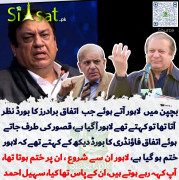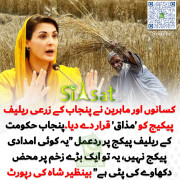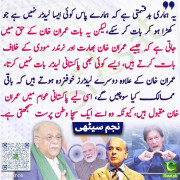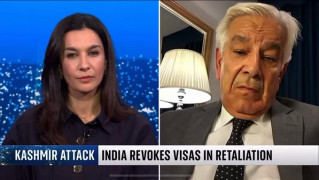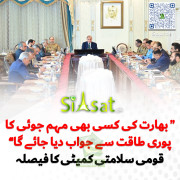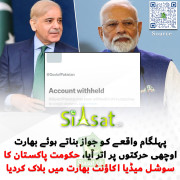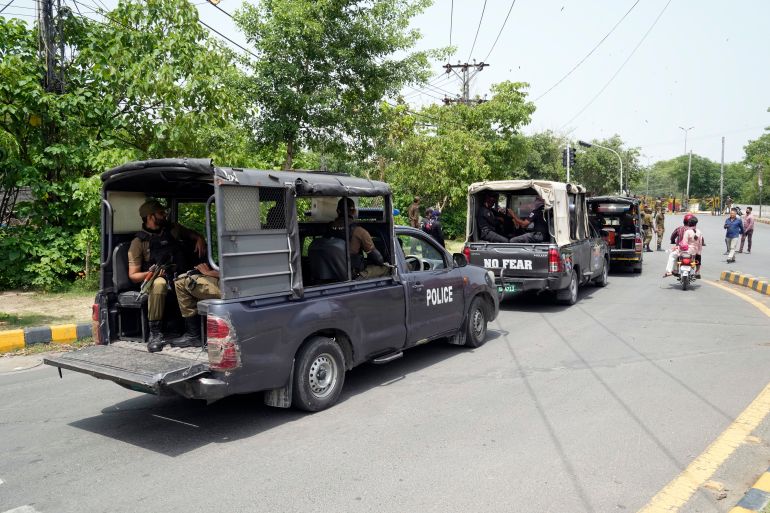Islam is a very rational religion. Towards every issue which a society may confront, Islam's approach is pragmatic which means that Islam does not only care about a particular action but it also considers the foreseeable consequences which may be a direct result of that action. In short, Islam is the most pragmatic, rational and sensible religion on earth. All this sensibility, pragmatism and rationalism is well reflected in Quran, a book which Muslims proudly memorize without understanding it to get the label of Hafiz later on which in turn neither helps our societies nor brings any positive change.
There are always some laws somewhere that are full of vagueness and ambiguity. Before making any final law with respect to blasphemy, a set definition of blasphemy as to what constitutes blasphemy is required. In Pakistan, if a person refuses the finality of Holy Prophet, he would likely get the label of blasphemous, though the same person may not necessarily insult the prophet by using bad words or by swearing at him. Similarly, a person who speaks against the law of blasphemy may get the label of a blasphemous (Salman Taseer) though he may not necessarily say anything against the Holy Prophet in particular. Also, in the eyes of Green Pagree walay (Brelvi Hazraat), a person of any other sect, who does not believe that Prophet is present everywhere along with Allah and who says that Prophet was a human being and has passed away, may be considered and treated as a blasphemous. In my opinion, an understandable definition of blasphemy can be that "if a person uses intolerable, abusive, vulgar and insulting language against Holy Prophet (صلی اللہ علیہ وآلہ وسلم) and our respected Sahaba-e-Karaam (RA) in written or verbal form in such a manner as to give rise to social disorder, hatred, sectarianism and bloodshed in society, such person shall be guilty of blasphemy". Now the question is that if someone commits this particular act, should he be punished? Another question of interest is that how such person should be punished? In other words, how far the punishment should go?
Blasphemy is most certainly an act that has the potential to cause disruption in a society. In a pure Christian society, the blasphemy against Hazrat Eesa would likely not be tolerated unless you are in a Christian society where hate speech is allowed to a considerable extent and where religion is simply a matter of private concern. Similarly, in East Punjab, blasphemy against Baba Guru Nanik will not be tolerated. In India, the blasphemy against Seeta, Geeta, Ram, Krishna and other sacred Bhagwans will not be tolerated. In all of these societies, a government in case of a blasphemy may take some action to punish the blasphemous. Blasphemy can be interpreted as a disorderly conduct which may promote hatred, disruption and even violent riots. Readers at this point can remind themselves of the rift between Shias and Sunnis due to the fact that Shias do not respect, in fact often disrespect, the first three Caliphs and Hazrat Aisha. Based on what I said above, I ask the question that should blasphemy be punished in a Muslim society? My own answer is that yes, it must be punished. Keep in mind that some laws can be introduced in a society considering the circumstances, environment and psychology of the people and there is absolutely nothing wrong with it. This is more like a pragmatic approach with which sensitive issues such as blasphemy must be dealt. People in general are more sensitive about their religions than anything else. When blasphemy takes place, it is quite natural and in accordance with human psychology that it hurts people's emotions and feelings. It simply causes rage and anger among people which may lead to hatred, riots, street fights and bloodshed in a society especially when society is uncivilized. Therefore, the act of blasphemy must be defined as an outrageous conduct and the perpetrator must be punished for the purpose of deterrence and peace.
As far as the Prophet Muhammed (صلی اللہ علیہ وآلہ وسلم) is concerned, even though he was a human being, he cannot be placed in the same category as today's politicians and big personalities. The status of Prophet Muhammed (صلی اللہ علیہ وآلہ وسلم) among Muslims is undisputed. Prophet Muhammed deserves the utmost respect as he was not only the last Prophet of Islam (صلی اللہ علیہ وآلہ وسلم) on whom a book like Quran was revealed but he was also the greatest man and an extremely honorable human being. It is quite understandable that Muslims do not, cannot and would not tolerate any insult which is directed towards their Prophet (صلی اللہ علیہ وآلہ وسلم) as it is human psychology. Iqbal once said " I cannot even tolerate if someone comes up to me and says that Iqbal, one day your Prophet was wearing dirty clothes." Understandably, a true Christian who is religious, reads bible, goes to church regularly and understands his religion will not tolerate a blasphemous act if directed against Jesus and similarly, a Sikh who is religious and for whom religion plays a big part of his life will not bear an act of blasphemy against Baba Guru Nanak. For the reasons above, I believe that blasphemy cannot be ignored and there should be some law against it in any society whether Muslim or non-Muslim since the act due to its nature and possible consequences is entirely negative. This is a very pragmatic approach.
Now the question is that how blasphemy should be punished? Should it be punished by death? Not necessarily! I rather believe that it should be contingent upon consequences, nature and severity of the act. If a person in his privacy such as a private religious meeting or in a closed room commits an act of blasphemy against another religion, that would be entirely different than publishing a book against Holy Prophet (صلی اللہ علیہ وآلہ وسلم) and Sahabas (RA) which insults them from its title cover to the last page. (The book which Raj Pal had published was titled as "Rangeela Rasool" and thus was quite offensive for Muslims for an obvious reason).
Two important things to remember:
(1) Quran strictly admonishes, condemns suggests punishments for those who bring corruption on earth or cause Fitna-u-Fisaad in society. A fitna can be defined as any act that has potential to cause fisaad in society.
(2) If a Muslim society enacts lax laws or adopts a soft attitude with respect to blasphemy that would give not all but narrow minded non-Muslims a license to say, write or publish anything freely against
Prophet Muhammad (صلی اللہ علیہ وآلہ وسلم), Sahaba-e-Karam (RA) and Quran. And it is quite obvious that Muslims in general will not be able to tolerate it. However, it is admissible that the way our society sometimes reacts on such occasions and the manner in which excesses are committed is wrong. For example, when cartoons were published in Denmark, the way street boys in Lahore stood against KFC and Mc Donalds and set markets and shops on fire was a classic example of an uncivilized, ignorant, uneducated, irrational and sentimental society.


